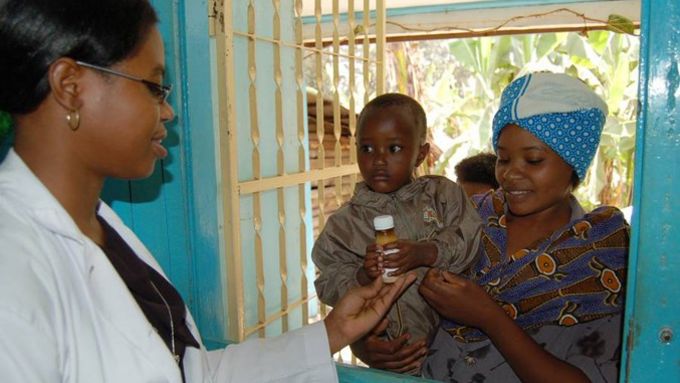New Pharmacist Cadre to Tackle Workforce Shortage
14.11.2017
Millions of people worldwide lack access to quality healthcare, largely also due to a shortage of health workers. This not only applies to clinical personnel but also to pharmacy staff. In Tanzania, it is estimated that in 95% of rural health facilities, medicines supply management is done by non-pharmaceutically-trained personnel. To improve medicines management in rural areas, Swiss TPH developed a new pharmaceutical dispenser training. Experiences will be shared on 16 November at the Fourth Global Forum on Human Resources for Health in Dublin.

Clinical personnel often take over medicines management in rural health facilities given a shortage of pharmaceutically-trained staff. (Photo: Thomas Schuppisser)
According to the World Health Organisation (WHO), millions of people worldwide lack access to quality health services. This is in large part due to a shortage, imbalanced skill mix, and uneven geographical distribution of health workers. This health workforce crisis does not only apply to clinical staff such as doctors, nurses or midwives, but also to pharmacy staff who are in charge of managing supply and dispensing drugs to patients.
In Tanzania, the majority of pharmaceutical staff works in urban and higher level facilities such as hospitals. No rural dispensary and only few health centers currently employ pharmaceutical staff, despite national guidelines recommending one pharmaceutical staff per dispensary and one or two per health center. This results in task-shifting: a study involving nearly 250 facilities showed that in 95% of rural facilities, medicines management is done by non-pharmaceutically trained cadres such as clinical officers, nurses and medical attendants whose main task should be clinical care of patients.
New Dispenser Cadre
To improve medicines management in rural areas, Swiss TPH, together with the St. John's University of Tanzania, developed a new one-year pharmaceutical dispenser training. By providing technical and vocational education (TVET), the training complements other university-trained pharmacist cadres. The nationally accredited curriculum aims to train medicines dispensers who will work in primary health care facilities in rural areas. Retention of this new cadre is promoted by bonded scholarships and by targeting trainees in their communities and districts.
"The training has helped me gain more skills in medicine dispensing," says Marwa Nyituga who currently attends the course. "I will be able to serve over 2,000 community members ensuring that they receive proper dosages." Since June 2016, 263 students have enrolled and first graduates of the new cadre are expected in December 2017.
The Right Skills in the Right Place
The innovative approach which aims to align skills with local needs is being presented on 16 November by Karin Wiedenmayer, Swiss TPH, at the Fourth Global Forum on Human Resources for Health in Dublin. The Forum aims to advance the Global Strategy on Human Resources for Health, and promote innovations as well as the engagement of different stakeholders.
"Technical and vocational training can contribute to training more and better skilled health workers in many low- and middle-income countries," says Karin Wiedenmayer. "With the pharmaceutical dispenser course, we aim to provide the right skills for the right jobs in the right place."
Health Promotion and System Strengthening
The pharmaceutical dispenser training was developed in the frame of the Health Promotion and System Strengthening project (HPSS) which is funded by the Swiss Agency for Development and Cooperation (SDC) and implemented by Swiss TPH and its partners. HPSS supports interventions in the areas of health promotion, health insurance, drug procurement and health technology maintenance. After a successful pilot phase in the Dodoma region, the project has been expanded to Morogoro and Shinyanga regions.
Stay connected
Subscribe to our newsletter and get all the latest research news, project updates, course and event listings from Swiss TPH.